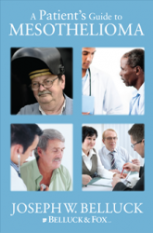
Aspirin Clinical Trial Could Lead to Early Treatment Guidelines for Mesothelioma
 For years, researchers and medical professionals have touted the benefits of aspirin. Often the go-to drug for minor aches and pains, aspirin is also prescribed as a daily antidote to help lower the risk of heart attack. Others claim a daily aspirin may reduce the incidence of cancers. Now, researchers in the UK are putting that assertion to the test in the form of the world’s largest clinical trial.
For years, researchers and medical professionals have touted the benefits of aspirin. Often the go-to drug for minor aches and pains, aspirin is also prescribed as a daily antidote to help lower the risk of heart attack. Others claim a daily aspirin may reduce the incidence of cancers. Now, researchers in the UK are putting that assertion to the test in the form of the world’s largest clinical trial.
The trial will be conducted in 100 centers across the UK, involving nearly 11,000 patients who are having or have had treatment for early cancers. The Add-Aspirin trial, being conducted by researchers at the Medical Research Council Clinical Trials Unit at University College London (UCL), aims to determine whether taking aspirin every day for five years can stop or delay cancers from returning that have been caught and treated at an early stage.
“There’s been some interesting research suggesting that aspirin could delay or stop early stage cancers coming back but there’s been no randomised trial to give clear proof,” said Prof. Ruth Langley, lead investigator on the trial, in an Oct. 23, 2015, press release. “The trial aims to answer this question once and for all.”
Pleural mesothelioma, an aggressive pulmonary cancer, caused by exposure to asbestos, has limited treatment options. Most often, however, chemotherapy is the treatment of choice. One issue with chemotherapy is that the medicine is highly toxic leading to a variety of side effects including low blood cell counts, thinning or brittle hair, loss of appetite and weight, diarrhea, nausea and vomiting. Researchers at the UCL hope to find an appropriate dose of aspirin that can fight cancer with limited side effects.
For patients who are fortunate enough to be diagnosed with mesothelioma while the cancer is still in its early stages, being able to help fight the disease with aspirin could make a difference in their quality of life while undergoing treatment.
For the trial, patients will be assigned to receive either aspirin or a placebo. Aspirin recipients will be given a dose of 300mg or 100mg to assess efficacy and proper dosage. Patients will take a drug once a day for up to five years. The trial itself will run for 12 years.
“If we find that aspirin does stop these cancers returning, it could change future treatment – providing a cheap and simple way to help stop cancer coming back and helping more people survive,” said Langley.
To find out more about the aspirin clinical trial see the Add-Aspirin website.

 Mike is a licensed attorney and the former editor of North Carolina Lawyers Weekly and South Carolina Lawyers Weekly. He has contributed numerous articles to the North Carolina State Bar Journal and is a co-author of Capital Lawyers, a history of the Wake County (NC) Bar.
Mike is a licensed attorney and the former editor of North Carolina Lawyers Weekly and South Carolina Lawyers Weekly. He has contributed numerous articles to the North Carolina State Bar Journal and is a co-author of Capital Lawyers, a history of the Wake County (NC) Bar.
 Gregory Froom is a licensed North Carolina attorney and the former editor of North Carolina Lawyers Weekly and South Carolina Lawyers Weekly.
Gregory Froom is a licensed North Carolina attorney and the former editor of North Carolina Lawyers Weekly and South Carolina Lawyers Weekly.
Leave a Reply